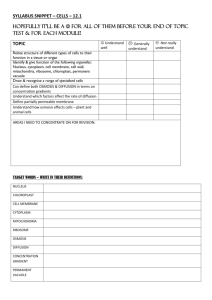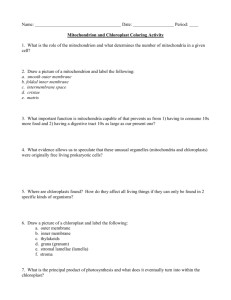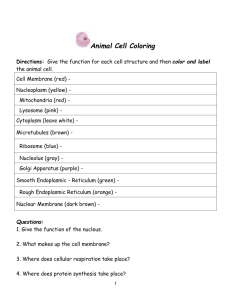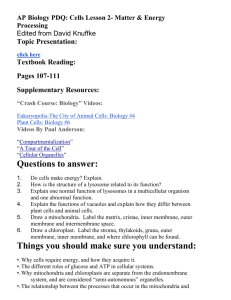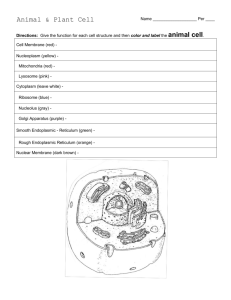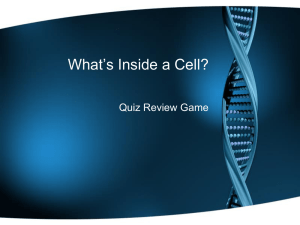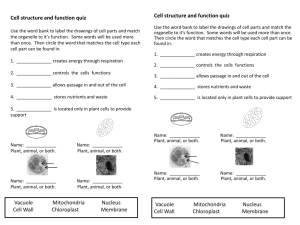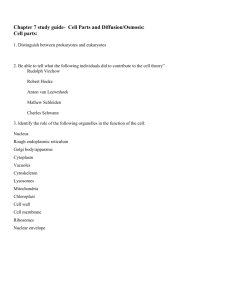Unit Review Tool
advertisement
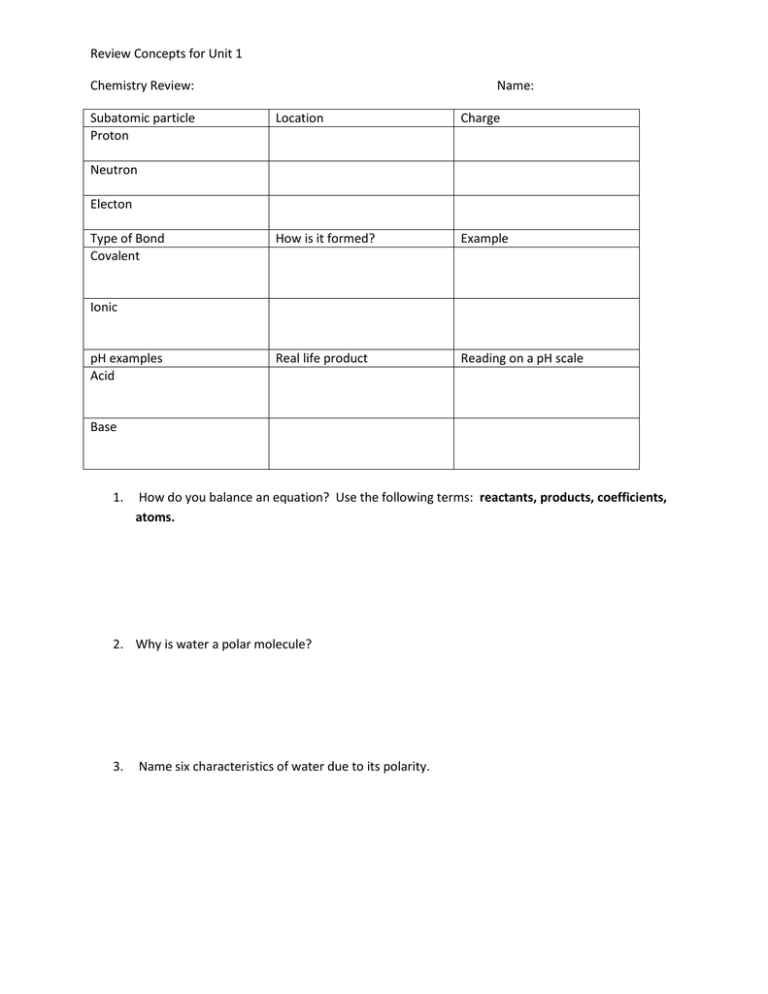
Review Concepts for Unit 1 Chemistry Review: Subatomic particle Proton Name: Location Charge How is it formed? Example Real life product Reading on a pH scale Neutron Electon Type of Bond Covalent Ionic pH examples Acid Base 1. How do you balance an equation? Use the following terms: reactants, products, coefficients, atoms. 2. Why is water a polar molecule? 3. Name six characteristics of water due to its polarity. Organic Molecules Polymer Monomer Elements Carbohydrates Lipids Protein Nucleic Acids Using the picture below, describe the importance of enzymes to life. Label the following picture: Use in life Compare and contrast Prokaryotes and Eukaryotes: Organelle Nucleus Rough ER Smooth ER Mitochondria Chloroplast Golgi Body Cell Wall Cell Membrane What types of cells have this? What does it look like? What does it do? Cellular Transport 1. Draw a picture that represents a concentration gradient across a cell membrane. Think mountains! 2. Compare and contrast diffusion and osmosis. 3. Compare and contrast active transport and passive transport. 4. A potato was cut into equal size pieces. Each piece was massed and then placed in a solution. The potato pieces were allowed to soak overnight. The next day, the pieces were taken out of the solution and massed again. The table below shows the data collected: Solution water 2% sugar 4% sugar Initial Mass 7.2 g 7.2 g 7.2 g Final Mass 8.3 g 7.2 g 6.6 g Percent Change Calculate the percent change: final mass – initial mass x100 initial mass 5. Which solution was hypertonic compared to the potato cells? ______________ 6. Which solution was hypotonic compared to the potato cells? ______________ 7. Which solution was isotonic compared to the potato cells? 1. 2. 3. 4. A. ______________ Look over the review sheet on page 1 of the packet. Look over all labs, research, vocabulary, activities from the unit. Make flash cards for key ideas. Look over quizzes and lab reports. Compare and Contrast Describe what the following pairs have in common and how they are different. Example acid/base Similarity: both describe pH of solutions Difference: opposite measurements of pH Organic Molecule/Inorganic Molecule Lipid/Carbohydrate Monomer/Polymer Cell Wall/Cell Membrane Mitochondria/Chloroplast Prokaryote/Eukaryote Rough ER/Smooth ER B. Lab Review The following are major concepts we learning in our labs. List the concepts under the correct lab: Reaction rates of chemical reactions Balancing chemical reactions Chemical Reactions Properties of water Water Lab C. Animal Cell/Plant Cell Osmosis/Diffusion Active Transport/Passive Transport Indicator Lab Life Molecules Identifying organelles Water’s importance to life Enzyme Lab If the cells we have been talking about could be compared to a city, what would be the functions of the following organelles? Nucleus Cell Membrane Mitochondria Golgi Body Rough ER Smooth ER Chloroplast

